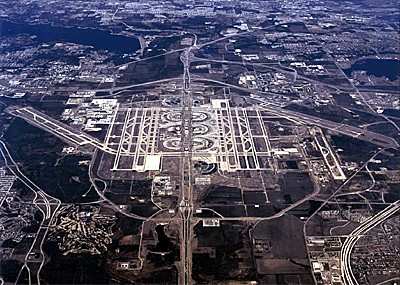Sun, Jan 15, 2023
Do Unto Others …
The Airline Passenger Experience Association (APEX)—a global non-profit dedicated to advancing the air-travel experience—has demanded the U.S. federal government compensate airline passengers after a Federal Aviation Administration (FAA) database failure grounded the entirety of scheduled flights within the U.S. National Airspace System for nearly three-hours on Wednesday, 11 January 2023.

The failure occasioned over ten-thousand flight delays and north of 1,300 flight cancellations—the whole of which adversely impacted millions of airline passengers and wrought more than $200-million in estimated economic damage.
APEX subsequently called upon U.S. Department of Transportation (DOT) Secretary Pete Buttigieg to hold the federal government to the same level of accountability he himself had demanded of airlines only one day prior to the FAA database failure.
On Tuesday, 10 January 2023, Buttigieg stated on Twitter, "We will enforce their [airlines’] responsibility to refund flight tickets and reimburse for alternate & ground transport, baggage costs, meals and hotels."

A program by which the U.S. federal government were held financially responsible for flight delays and cancellations engendered by failures of its agencies could be funded by, and passenger reimbursements drawn from, the billions of tax dollars air-travelers pay annually.
APEX CEO Dr. Joe Leader set forth: "The US government needs to rise to the same level of accountability to passengers as the airlines that have been paying hundreds of millions of dollars to protect customers for non-weather-related delays and cancellations. Air traffic control failures happen too often. This national failure highlights a need for the US government to redirect airline taxes to practice what they preach: protect customers when it's your fault within your control."

Citing the calamitous aftermath of the relatively minor, 11 January FAA database failure, APEX stressed the need for modernization of the nation’s Air Traffic Control system. U.S. government research has indicated that a Next Generation Air Transportation System (NextGen)—in addition to further protecting passengers from technical or otherwise manmade failures—could reduce airline fuel consumption by up to five-percent through more efficient traffic routing and management. Such and upgrade could also save billions of dollar paid annually by airlines and their passengers for fuel, equipment wear, and aircraft repositioning.
More News
States That Current Process is Damaging National Aerospace Development US Senator Jerry Morgan is pushing the FAA to speed up the process for rocket launch licensing. He argues tha>[...]
From 2015 (YouTube Edition): Model Aviator Aims For Full-Scale Career While at the 2015 Indoor Electric RC Festival, referred to as eFest, ANN CEO and Editor-In-Chief, Jim Campbell>[...]
Dave Juwel's Aviation Marketing Stories ITBOA BNITBOB ... what does that mean? It's not gibberish, it's a lengthy acronym for "In The Business Of Aviation ... But Not In The Busine>[...]
Aero Linx: Cardinal Flyers Online The Cardinal Flyers Online Web site was created and is maintained by me, Keith Peterson. My wife Debbie and I have owned a 1976 RG since 1985. Wit>[...]
Clearance Void If Not Off By (Time) Used by ATC to advise an aircraft that the departure release is automatically canceled if takeoff is not made prior to a specified time. The exp>[...]
 Senator Pushes FAA to Accelerate Rocket Launch Licensing
Senator Pushes FAA to Accelerate Rocket Launch Licensing Classic Aero-TV: RJ Gritter - Part of Aviations Bright New Future
Classic Aero-TV: RJ Gritter - Part of Aviations Bright New Future Aero-FAQ: Dave Juwel's Aviation Marketing Stories -- ITBOA BNITBOB
Aero-FAQ: Dave Juwel's Aviation Marketing Stories -- ITBOA BNITBOB ANN's Daily Aero-Linx (10.27.24)
ANN's Daily Aero-Linx (10.27.24) ANN's Daily Aero-Term (10.27.24): Clearance Void If Not Off By (Time)
ANN's Daily Aero-Term (10.27.24): Clearance Void If Not Off By (Time)





